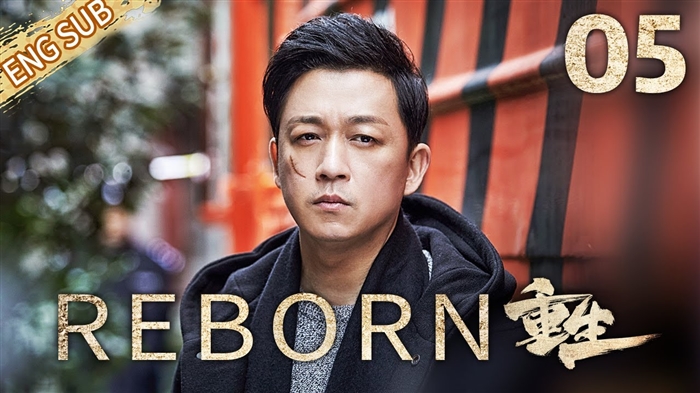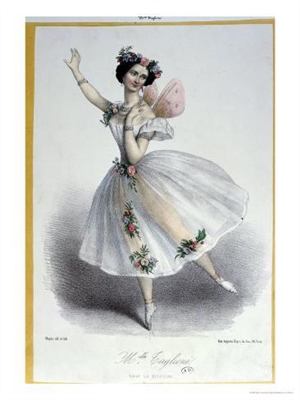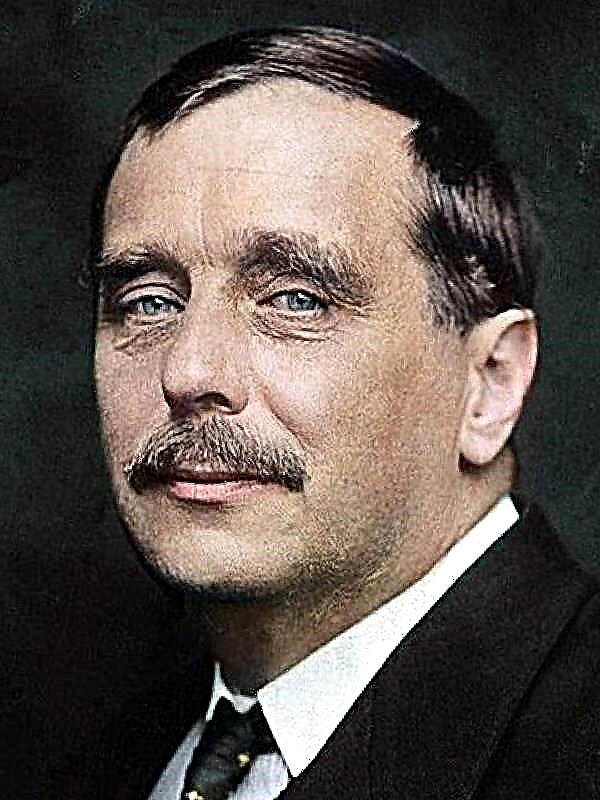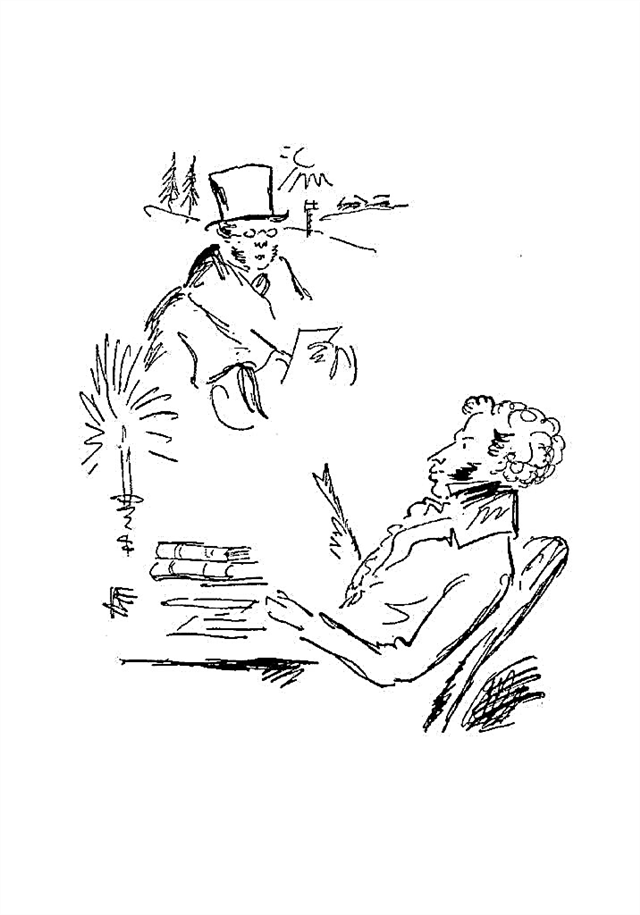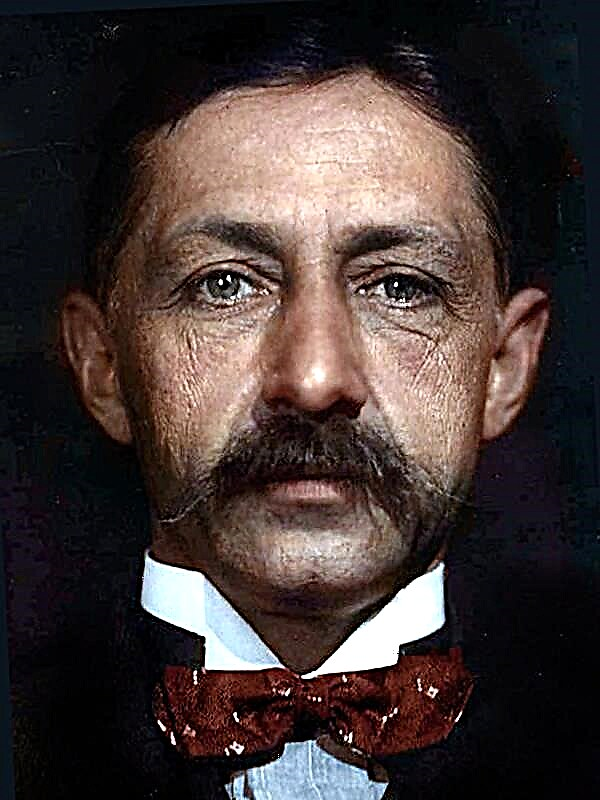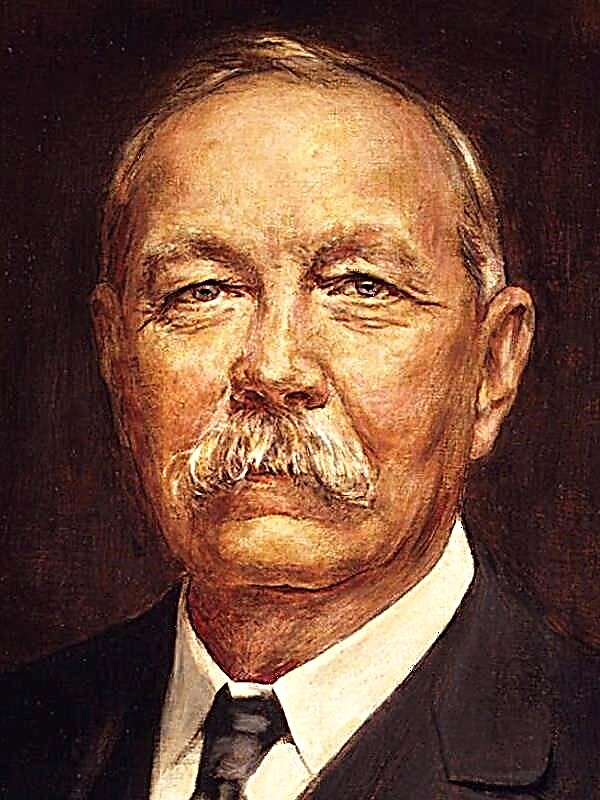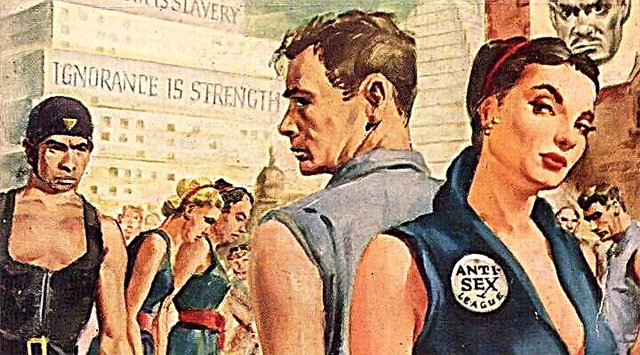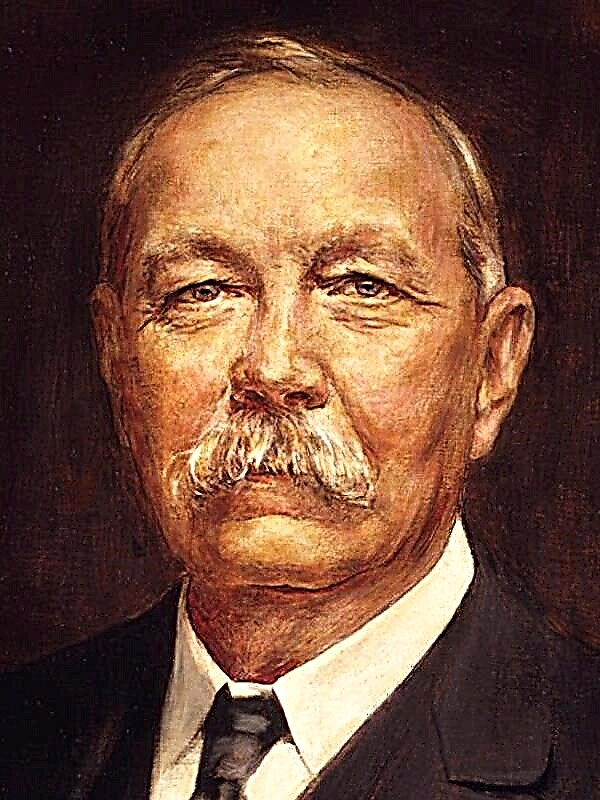For many readers, Vladimir Mayakovsky is, first of all, a revolutionary poet and a prominent representative of futurism. Defiant replicas, fragmented sentences, exclamation marks - such an association arises when the poet's name is mentioned. The theme of love was also not without these tricks. In Mayakovsky, the original form of poems is observed in love lyrics, and the lyrical hero has a rather unusual character.
- "Lilia!" Mayakovsky’s muse was Lilya Brik, a married lady with whom he had an affair. The author dedicated poems and poems to her, one of which bears her name: “Lilichka!". Admiring her beauty, the lyrical hero is jealous. In a rather crude language for a love letter, he turns to his beloved with a fear that their love will end. He reassures the girl, saying that he will not commit suicide: after all, with this step he will lose the opportunity to see her.
- "Letter to Tatyana Yakovleva." In a poem addressed to an emigrant living in France, Mayakovsky writes about love, but uses political overtones. The divergence of political views did not allow people to get closer: Yakovleva refused to return to Soviet Russia. The lyrical hero accepts her answer for the insult and announces that soon she will not only belong to him, but also Paris. Mayakovsky means the desired victory of communism over bourgeois countries. Read more about this novel in analysis of the work.
- "A letter to Comrade Kostrov from Paris about the essence of love." A letter to a friend gradually develops into a conversation with a Frenchwoman. The hero first praises himself, but then begins to talk about his understanding of love. He cannot describe it in simple words, he believes that this feeling requires a lot of energy from a person and often leads to suffering. Passion for him is not related to the wedding - it is known that Mayakovsky never married during his lifetime, although he had children. The lyrical hero compares love with chopping wood and jealousy of Copernicus; she is stronger than a hurricane, fire and water, and no one can control her.
- "Attitude to the young lady." Mayakovsky’s lyrical hero in this short poem shows restraint and nobility to a certain lady with whom he might soon have a love relationship. He warns her and asks her to move away from a steep cliff of passion. The young man is aware of the possible consequences of a rash act and decides to protect the girl from them, even comparing himself with a good father.
- "The author devotes these lines to himself, the beloved." Hyperbole and oxymoron create a feeling of enormous longing for the poet. The hero regrets that he is not as dull as the sun; not tongue-tied, like Dante and Petrarch; not as silent as thunder. He compares himself to an unnecessary giant who cannot be loved. He wants to find a beloved, similar to him, but he does not succeed. Loneliness is the main motive of the work, and the theme of creativity is closely intertwined with the theme of love.
- "Loves? does not love? I’m breaking my arms ... ” Vladimir Mayakovsky intended to write a poem about the five-year plan, but the drafts remained in the poet's notebook, and now they are combined in the collection “Unfinished”. "Loves? does not love? I’m breaking my hands ... ”is one of those sketches dedicated to Lilya Brik. The poem is devoid of punctuation except for two question marks in the first line. The lyrical hero is not young, but nevertheless gives in to insanity, which he is not going to fight: he divines on a camomile. He does not want to wake the girl with telegrams and at the same time he cannot fall asleep thinking about her.
- "Love". This poem presents a gallery of people who do not know how to love. The characters that Mayakovsky makes fun of, cheat on their spouses, quarrel with each other because of trifles, they are jealous or become henpecked. The poet’s contemporaries marry several times in his life, to which the author says that soon it will not be clear who is who to whom is related. The poet does not advocate for the family, but for the cleanliness of relations and for the fact that men and women are friends among themselves.
- "Heine-like." The name of the poem contains the name of the German poet of the romantic era, Heinrich Heine. Mayakovsky describes how a girl leaves the lyrical hero because she saw him from another. The young man sneers, answering after her that the lightning from her eyes did not kill him, which means that the thunder is not afraid of him either. The short work is based on real events: Lilya Brik learned about Mayakovsky’s love affair with Lily Lavinsky. Brik herself met at that time with critic Viktor Shklovsky, which served as the motive for writing the last lines.
- "I like! The disturbed birds ... " The cry of the soul in white verse - so you can call this poem. The lyrical hero says that it’s stupid to be silent about love, and asks to call the firemen, the police, because he is overwhelmed with feelings. He screams about his condition with such force that the birds fly into the air, and a thousandfold echo answers the lover. The work differs in form not only by the absence of rhyme, but also by punctuation. For example, in the last line the exclamation: “I love,” ends with four exclamation points.
- “If I wrote something.” The poet seemed to summarize his work, announcing that the fault of all of his works is the brown eyes of the beloved. The following is a story about how a girl's eyes hurt, and, according to a doctor’s prescription, a young man gives her carrots, calling it the best gift he has ever made. It all ends in recovery, after which the hero can again admire the girl, and she can look at the world, which, according to the tradition of the rebel poet, is identified with the revolution.

